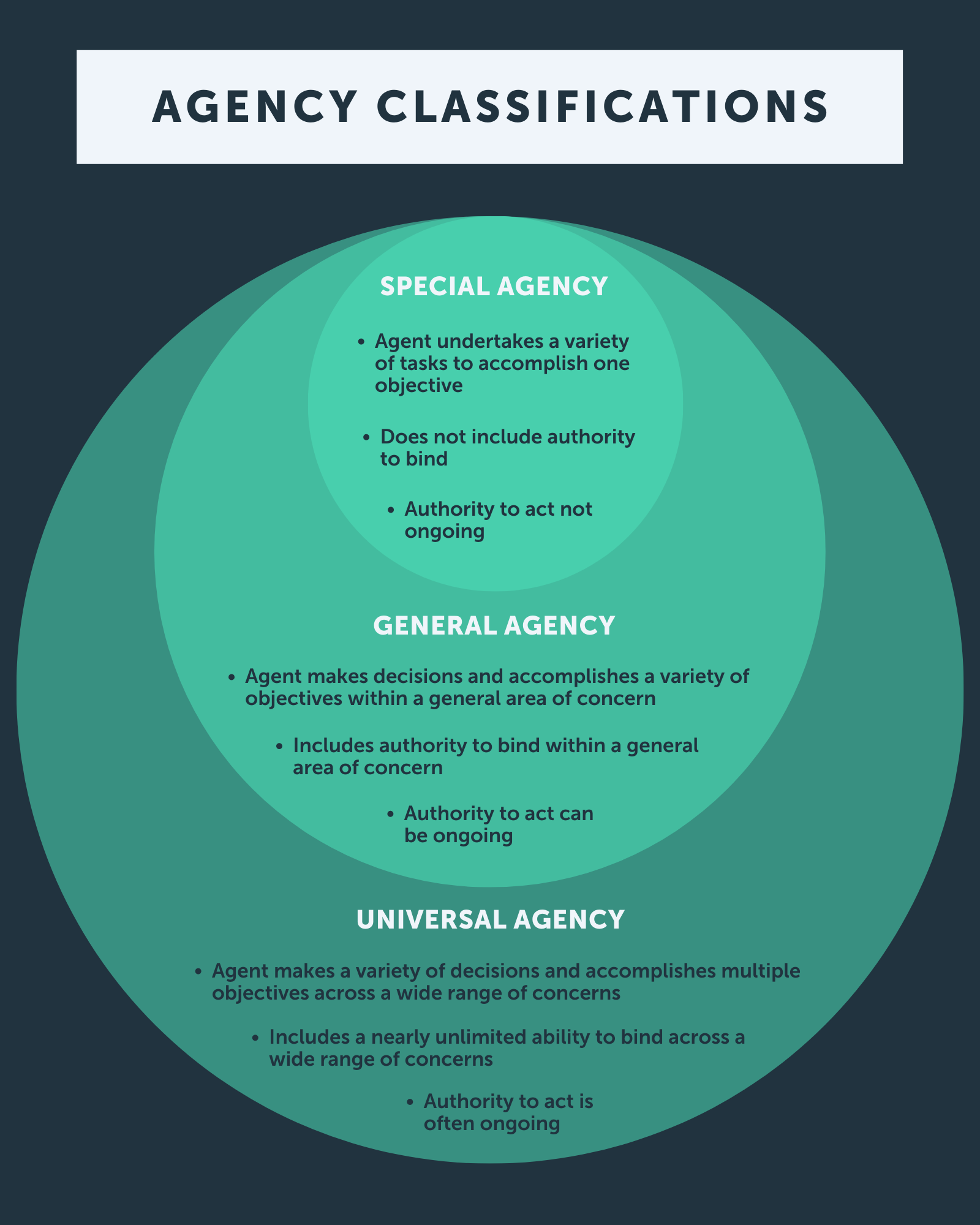As you prepare to become a real estate agent, you'll need to understand the three different types of agency and how they apply to your role. In short, the type of agency you have will determine how exactly you can represent your clients. Further, the type you'll need will depend on the specific situation. Here's what you should know.
What Does Agency Mean for Real Estate Agents?
Agency is defined as the ability to take action or choose what action to take. To have agency in a situation means that you have the authority to undertake a variety of tasks for yourself or someone else to accomplish an objective.
Agency comes into play as a real estate agent because you are representing someone else (the buyer, seller, or both), while working with third parties. The person being represented is often referred to as the principal. So the relationship between the principal and agent is known as agency.
3 Types of Agency Classifications
When studying to earn your real estate license, you'll need to understand the three types of agency and how they apply to you as a real estate agent. Being so, here's a quick overview of what they are:
Special Agency
 Special agency enables an agent to complete tasks for another person to accomplish one specific objective. It doesn't include authority to bind and is unique to one situation, not an ongoing relationship. The power to bind means to commit to any contractual or financial obligations on behalf of the principal. When a broker represents a buyer or seller in a real estate transaction, they are often granted special agency to complete the one sale.
Special agency enables an agent to complete tasks for another person to accomplish one specific objective. It doesn't include authority to bind and is unique to one situation, not an ongoing relationship. The power to bind means to commit to any contractual or financial obligations on behalf of the principal. When a broker represents a buyer or seller in a real estate transaction, they are often granted special agency to complete the one sale.
General Agency
General agency enables an agent to take action for another person on an ongoing basis to achieve a variety of tasks within a specific area. In contrast to special agency, general agency isn't limited to a single event. Additionally, as a general agent, you can be granted the authority to bind within the specific area you are managing. An example of a general agent would be a property manager who acts on behalf of clients on an ongoing basis. Another example would be a client that wants you to handle multiple real estate transactions on their behalf. General agency can be granted by a general power of attorney.
Universal Agency
Universal agency grants an agent full power to make decisions and accomplish tasks for another person in a wide range of areas, not limited to a specific area like a general agency. Universal agents have a nearly unlimited ability to bind and have ongoing authority. A power of attorney is required for this relationship. A person may want a universal agent if, for example, they are a real estate investor that wants to retire and entrust someone else with their business dealings.
Get Your Real Estate License Online!
Are you preparing to become a real estate agent? Now, doing so is easier than ever with Aceable's online courses. You can sign up online and complete your coursework from your phone or computer.
What can you expect? We've created engaging classes featuring knowledgeable real estate agents to help you learn all you need to know. Plus, gain access to robust study tools so you can go into the final exam with confidence. Speaking of the final exam, in many states, you can also take that online — at no extra cost!
Learn more about getting your license online through Aceable!
